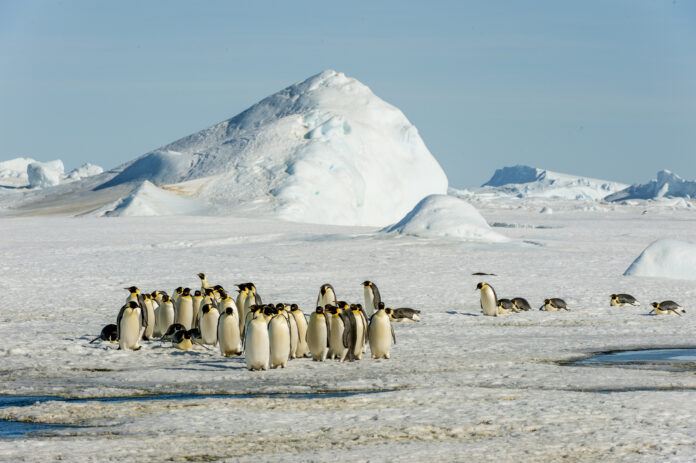The emperor penguin, which roams Antarctica’s frozen tundra and chilly seas, is at severe risk of extinction in the next 30 to 40 years as a result of climate change, an expert from the Argentine Antarctic Institute (IAA) warned.
The emperor, the world’s largest penguin and one of only two penguin species endemic to Antarctica, gives birth during the Antarctic winter and requires solid sea ice from April through December to nest fledgling chicks.
If the sea freezes later or melts prematurely, the emperor family cannot complete its reproductive cycle.
“If the water reaches the newborn penguins, which are not ready to swim and do not have waterproof plumage, they die of the cold and drown,” said biologist Marcela Libertelli, who has studied 15,000 penguins across two colonies in Antarctica at the IAA.
This has happened at the Halley Bay colony in the Weddell Sea, the second-largest emperor penguin colony, where for three years all the chicks died.
Every August, in the middle of the southern hemisphere winter, Libertelli and other scientists at Argentina’s Marambio Base in Antarctica travel 65 km (40 miles) each day by motor bike in temperatures as low as -40 degrees Celsius (-40°F) to reach the nearest emperor penguin colony.
It’s ‘now or never’ to thwart climate disaster, says new UN report – Apr 4, 2022
Once there, they count, weigh, and measure the chicks, gather geographical coordinates, and take blood samples. They also conduct aerial analysis.
Trending Stories
Amber Heard testifies alleged Johnny Depp violence: ‘I’ve never been so scared in my life’
Mattea Roach makes it win No. 23 on Jeopardy!, but needed a big comeback
The scientists’ findings point to a grim future for the species if climate change is not mitigated.
“[Climate] projections suggest that the colonies that are located between latitudes 60 and 70 degrees [south] will disappear in the next few decades; that is, in the next 30, 40 years,” Libertelli told Reuters.
“The disappearance of any species is a tragedy for the planet,” said Libertelli. “Whether small or large, plant or animal – it doesn’t matter. It’s a loss for biodiversity.”
The emperor penguin’s disappearance could have a dramatic impact throughout Antarctica, an extreme environment where food chains have fewer members and fewer links, Libertelli said.
In early April, the World Meteorological Organization warned of “increasingly extreme temperatures coupled with unusual rainfall and ice melting in Antarctica” – a “worrying trend,” said Libertelli, since the Antarctic ice sheets have been depleting since at least 1999.
The rise of tourism and fishing in Antarctica has also put the emperor’s future at risk by affecting krill, one of the main sources of food for penguins and other species.
“Tourist boats often have various negative effects on Antarctica, as do the fisheries,” said Libertelli.
“It is important that there is greater control and that we think about the future.”
— Reporting by Lucila Sigal; Writing by Isabel Woodford and Brendan O’Boyle
© 2022 Reuters



